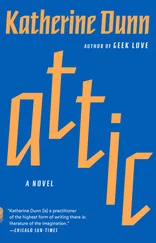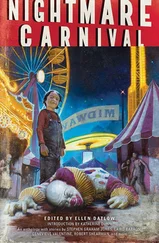“Get your asses the hell out of that tree!”
The farmer snapped his belt, doubled against itself, the strap wide enough to sting the air all the way up beside us among the Bings. Arty pressed his head back against the trunk and peered down at the man with the belt. He was old and strong and his eyes clicked on me as soon as I moved. I dodged out of sight and the belt snapped again. The leaves quivered above where Elly and Iphy were perched. They’d been bickering about how many cherries they could eat without sharing a bellyache and the runs. It must have been their high voices that drew this old codger. They were silent now, scared as usual.
“Come down now, or by all that crackles I’ll be up there after you!” He didn’t really sound mad. He’d stopped a ways out from the tree, too smart to come underneath where things might drop on him.
Arty’s mouth moved close to my ear. “You first, then Elly and Iphy. He thinks it’s kids.”
I crammed my voice into the top of my mouth and pitched it silly, “We’re coming, mister, don’t hurt us!” I took my dark glasses off and poked my head past the edge so he could see my ears sticking out from under my watch cap. I squinted so he couldn’t tell the color of my eyes. The farmer’s shrewd eyes tightened on me. His mouth quirked into one corner for a spit.
“I’ll hurt you in a minute.”
“We’ve got to help our brother, mister, just a second.”
Arty stretched his neck and clamped his jaw onto the last twig of cherries I held as I began climbing out of the tree crotch. “Elly,” I called deliberately, “Iphy, help me get Arty down.” A long leg appeared with a crumpled pink sock and a white sneaker. I peeked at the farmer. He cracked the folded belt against his high rubber boot. He was watching but he’d loosened a bit. The girls’ names did that, soft, old-fashioned things. And the “Don’t hurt us” had him disarmed.
“Psst!” Iphy was looking anxiously down at me while Elly maneuvered the descent. Arty muttered softly up at them, “Oly goes down first. You hand me down to her and then come.”
“We’re coming down, mister,” I called, and then slid away from Arty, down the trunk, gripping with toes and fingers in the deep cracks of the bark to slip down the easy slope of the tree on the side away from the brown-faced man with the belt. When I hit the ground I stepped back, bent forward, and rubbed my cap off against the trunk. I was reaching up for Arty when I heard the old bastard grunt. He’d seen my hump and my bald head. The twins were lowering Arty with three hands and hugging the tree with the fourth. Arty’s clothes hissed and snagged on the bark as he slid. I caught his hips on my chest and he slid down my belly to the ground. The twins bounced down the trunk, peering from both sides at the farmer. I turned to look at him. His eyes slit into suspicious surprise. Arty started humping toward him quickly. I jumped after. The twins caught up and Elly held my hand as we moved toward the farmer. He fell down on his butt in the grass. His belt rolled out flat beside him. We went past him fast and out of his cherry orchard.
Later in bed I decided Arty was smart. It was the order of our appearance that got the guy. Here he was cracking his belt and chuckling inside about another summer’s batch of kids in the cherry trees. He’d be rehearsing the story already, to tell his wife over chicken and biscuits in the kitchen, as he sat with his sleeves still damp from scrubbing and his hat off showing the pale stretch below his hair where the sunburn ended.
“Caught Jethro’s grandkids in the Bings today,” he’d say, “all up one tree, same as their daddy and his sis twenty years ago.” And he and his wife smiling at each other and her pouring the iced coffee and saying she hoped he hadn’t scared them too much. But while all this was readying behind his eyes we stepped out and dropped him. First me, twisted under my hump, the watch cap popping its bald shock, and then the 1.88 seconds for him to register the shape of Arturo and the way he moved, and, most important, which direction he was heading. If that had been all he might have taken a pitchfork to us. But then came the night-haired girls, milk-skinned, flower-eyed, and their two long legs in the slumping pink socks. The old man had thirty years of shooing kids from trees yanked out of him. I wondered if he would say anything at all about it to anybody.
Arty’s head jerked around and his eyes ripped at me. The shadows of sharp bone and muscle strained at his tight skin. Anger.
“Pick me up. Now. Pick me up.” He was heavy but I hoisted him from the middle until he leaned against me, upright, then crouched and hefted him onto my shoulder. His head and chest faced the rear, his round butt curving into my arms.
“I hate long grass. Hate it.” His voice came into my left ear as we moved slowly through the field. “You try humping along with your nose in the snakes and cow shit for a block or two.”
Arty always talked to the people. It was a central charm of his act that, though he looked and acted alien, part animal, part myth, he would prop his chin on the lip of the tank to talk “just like folks.” Only it wasn’t quite like folks.
At first, when Arty was tiny, Al was his enthusiastic master of ceremonies. Arty gradually worked his way in and took over the talking entirely. Before too long Al just stood out front and lured the crowd in.
Arty started with explanatory chat about his own physique but soon discovered the power of piffle and vapor. Greeting-card sentiments, intoned pretentiously in the stage-lit waver of the tank by such an intriguing little deviant, packed a surprising wallop.
Arty and Papa experimented. Arty’s show changed in small ways — a pink spotlight instead of red — or, occasionally, in big ways. It was always a sit-down show, a bench-and-bleacher act. The tank and Arty were the only focus. For a while Arty made a dry entrance. He came out on the platform above the tank before diving in. Then he decided that folks wanted to think that he lived in the water all the time — maybe even breathed water. After that he always made his first appearance in the water. He used a screen in the water for a while, hiding behind it and swimming out into the brightly visible part of the tank when Papa signaled. Arty got sick of waiting and had a big tube tunnel run up through the tank floor so he could wait dry in the back and make a dramatic swoosh entrance when the lights came up. Arty spewing upward in a burst of luminescent bubbles with a thrumming fanfare of recorded music. It got the crowd going.
Eventually Arty grew bored with the Gilled Illusion of Aqua Boy, and in his Arturan phase enjoyed parading before his throng (at a distance, in a golf cart) on dry land, but he stuck to the submariner identity for a long time.
As he bitterly pointed out, he wasn’t extravagant enough looking to hold a crowd for twenty minutes (the length of the show in those early days) by just lolling around and letting them gawk. He had to do something. The seal tricks of his infancy soon palled on him. Swimming was useful. The bright tank in the dim tent was a focus. The water and his floating form were soothing, hypnotic. People stared at the tank and his undulating figure as they would at a bright fire. The tank made him exotic but safe. “They can relax,” Arty theorized, “because they know I’m not going to jump up into their laps.” (Arty tended to be snide about laps, not having one of his own.)
“It’s a fiendish waste to get ’em into a beautiful sucker zone of mind and then not do anything with them,” Arty would lament. So he learned to talk. He recited rhymes, quoted the more saccharine philosophers, commented on human nature. The standard approach, and the line Papa always wanted Arty to take, was jokes, comedy, a creaking stand-up patter that would seem unique coming from the Aqua Boy. But Arty wouldn’t go for it. “I don’t want those scumbags laughing at me,” he’d snarl. “I want them amazed at me, maybe scared of me, but I won’t let them laugh. No. Oh, a little chuckle because I’m witty, sure. But not a running line.”
Читать дальше












